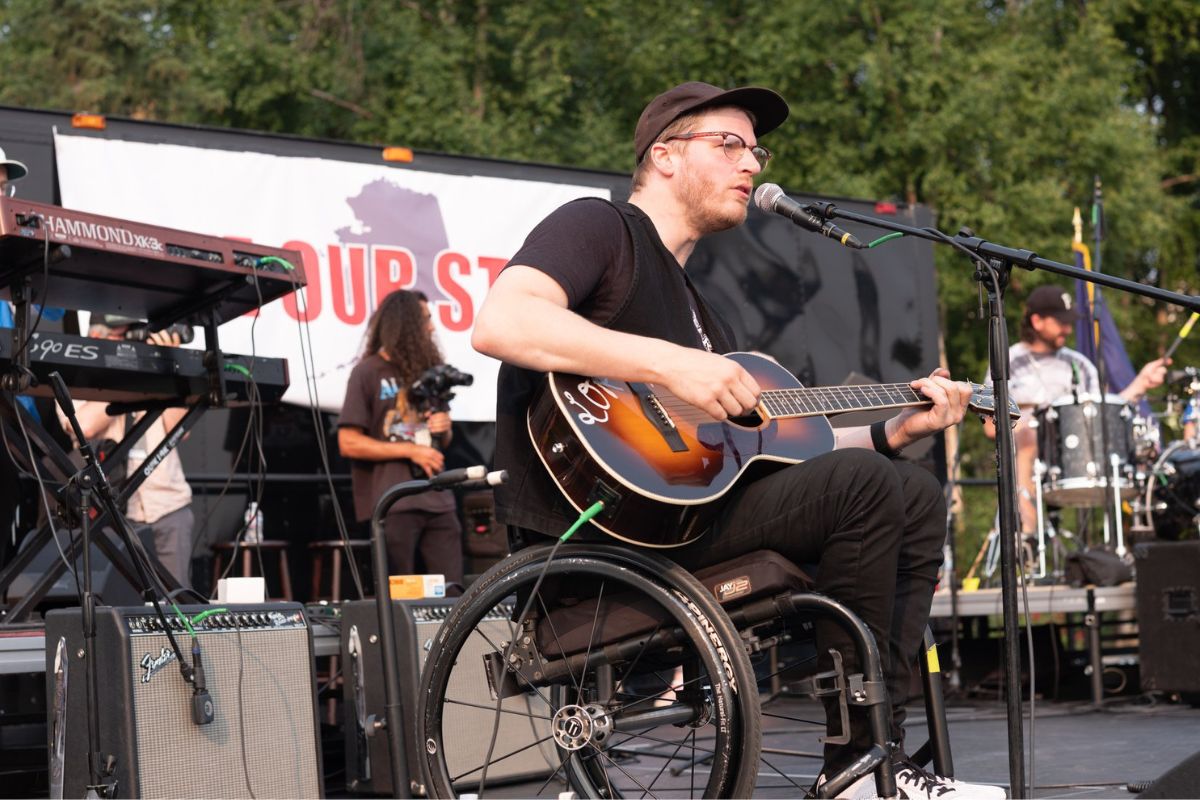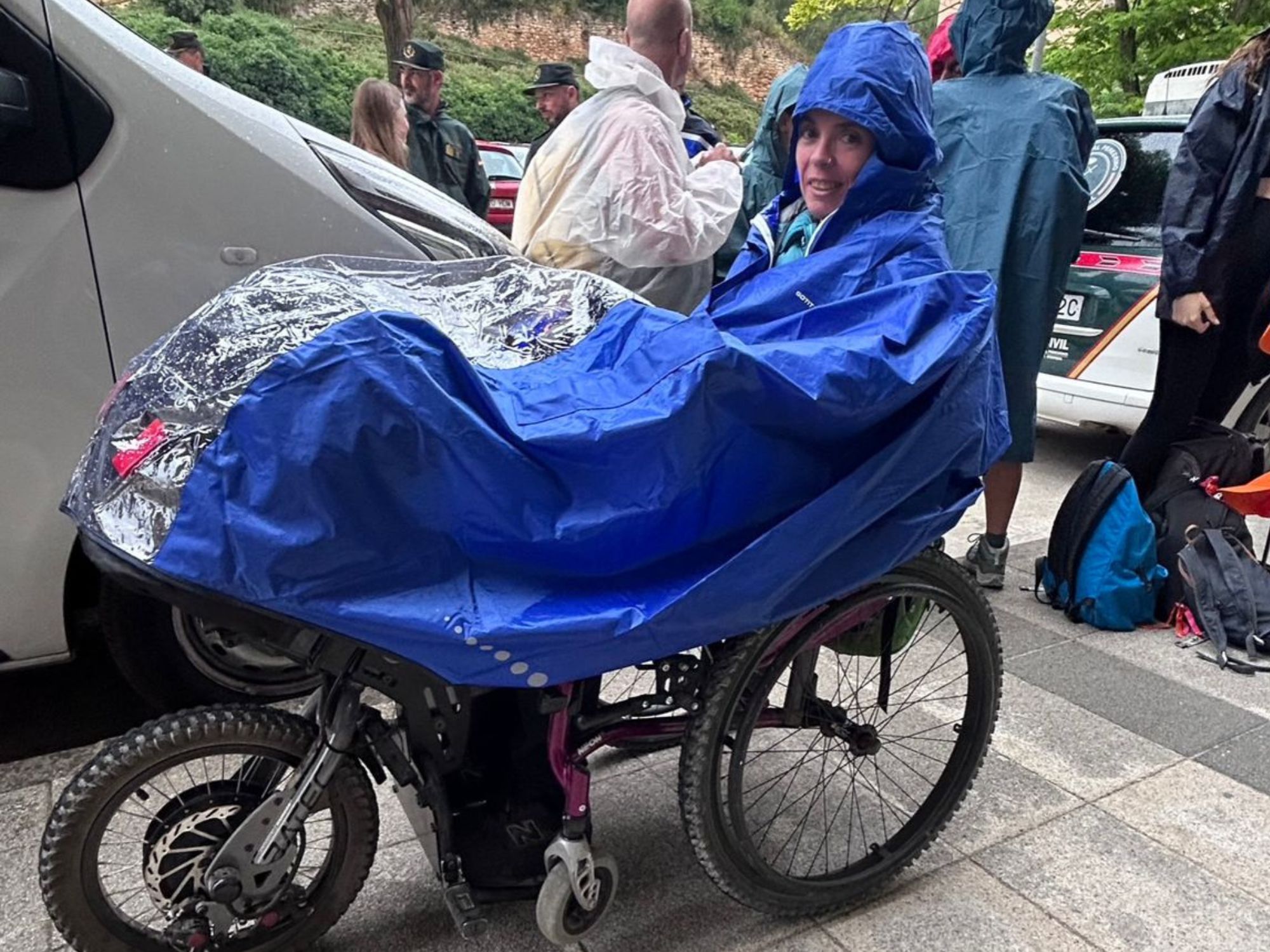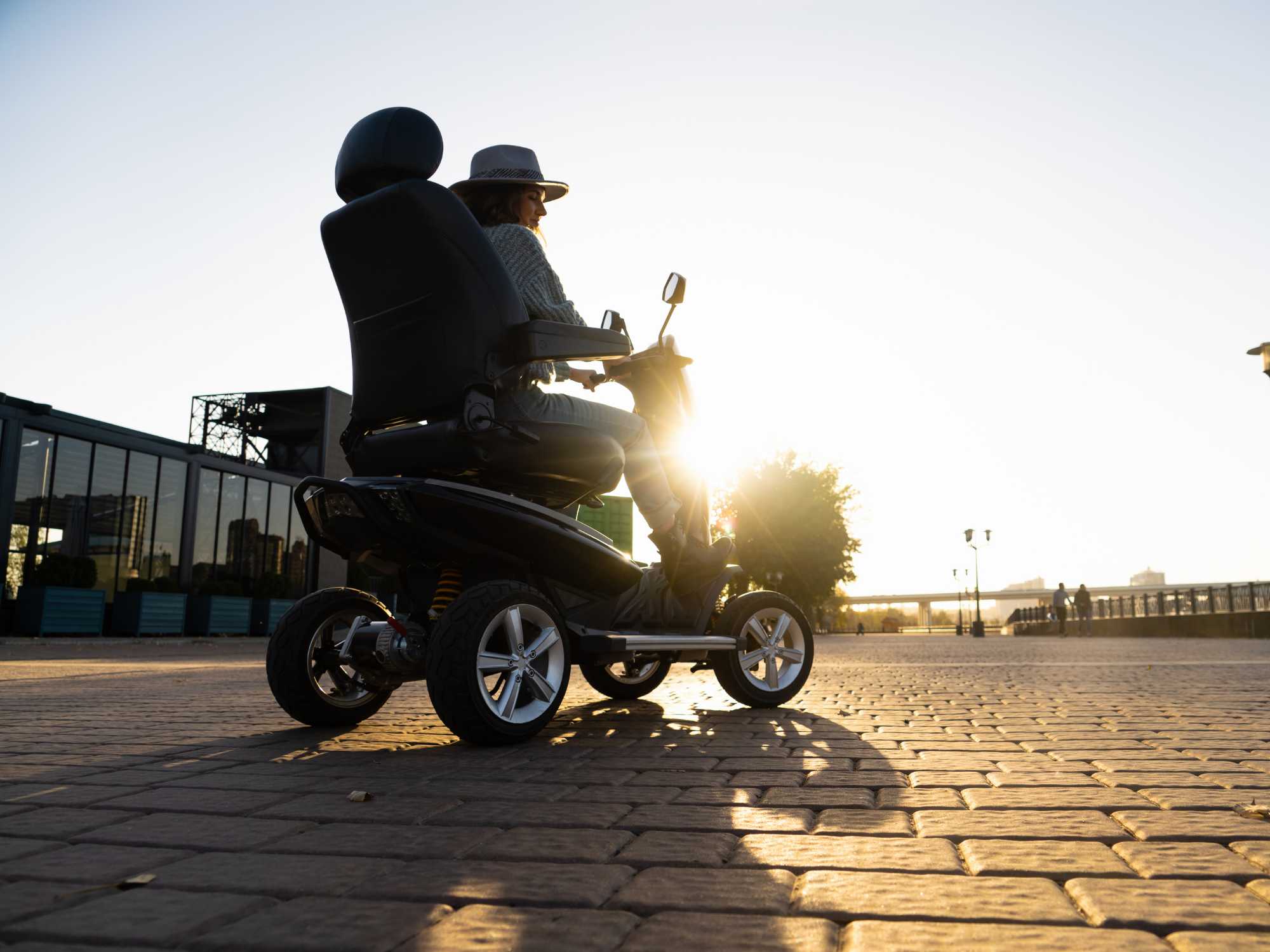History has proven that music and disability can go hand in hand. This is exemplified by some of the most famous disabled musicians in history, as well as more recent bands in the music scene.
A perfect example of this is Beethoven, the classical music genius who, despite his deafness, created some of the best compositions of all time. In the music scene of recent decades, we can find other examples of artists with diverse abilities. Ray Charles, blind since childhood, is one of the greatest singers, saxophonists and pianists of soul, R&B and jazz. Another example is Rick Allen, drummer of Def Leppard, who managed to continue playing the drums with only one arm after a car accident.
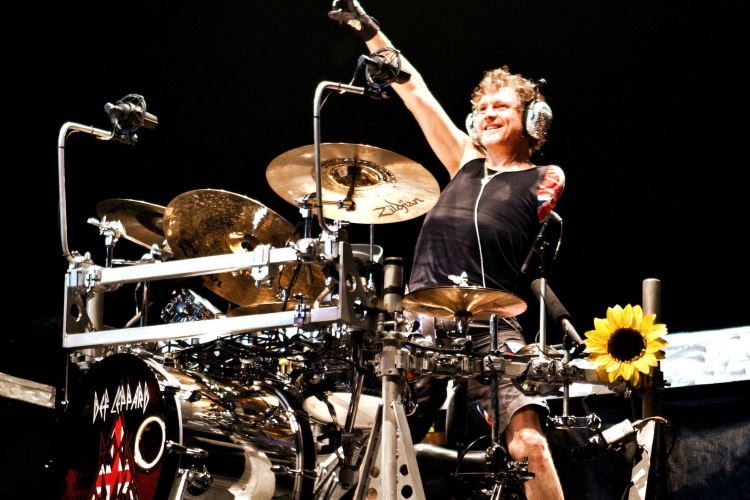
Musicians with physical disabilities
Portugal. The Man.
Eric Howk is the guitarist and composer of the famous band Portugal. The Man. In 2007, during negotiations to join the band, Howk had a fall that caused paraplegia, and he has used a wheelchair ever since.
After his injury, he continued playing guitar in different bands and shows, which served as a learning curve and adaptation to his new normal. This experience made him realise that he wanted to keep playing, composing and touring.
In 2015, he finally joined the band and has enjoyed every show since, as he stated in an interview. In 2018, they won a Grammy for the song Feel it Still, making Howk the second wheelchair-using musician to receive this award.
Interestingly, the first was Christopher Reeve in 1999 for the best-narrated audiobook with Nothing is Impossible.

Staff Benda Bilili
In 2009, the Congolese group Staff Benda Bilili got the world dancing with their music, which blends Congolese rumba with tribal rhythms, funk and Cuban mambo. What makes this band unique is that its members are physically disabled musicians, some of whom have had their mobility affected by polio and now use wheelchairs.
In just three years, they went from being street musicians to becoming one of the leading acts in contemporary African music. Their first album, Très très fort, catapulted them to fame, and they played at the Glastonbury Festival, receiving praise from Massive Attack and significant media recognition from the BBC, The Times and NME, among others.
Katcross
Formed by Cathy Cros and Mathieu Blanc, this French synthpop group creates a unique universe that captivates from the first moment. Cathy, also known as Kat when she takes the stage, uses a wheelchair and is also a user of our handbikes. Thanks to this connection, the Batec Mobility team discovered the band and got hooked on their music.
Their latest album, Girls Can Fly, has a more rock-oriented sound and is fantastic. Kat has also collaborated on several accessibility campaigns for the city of Toulouse.
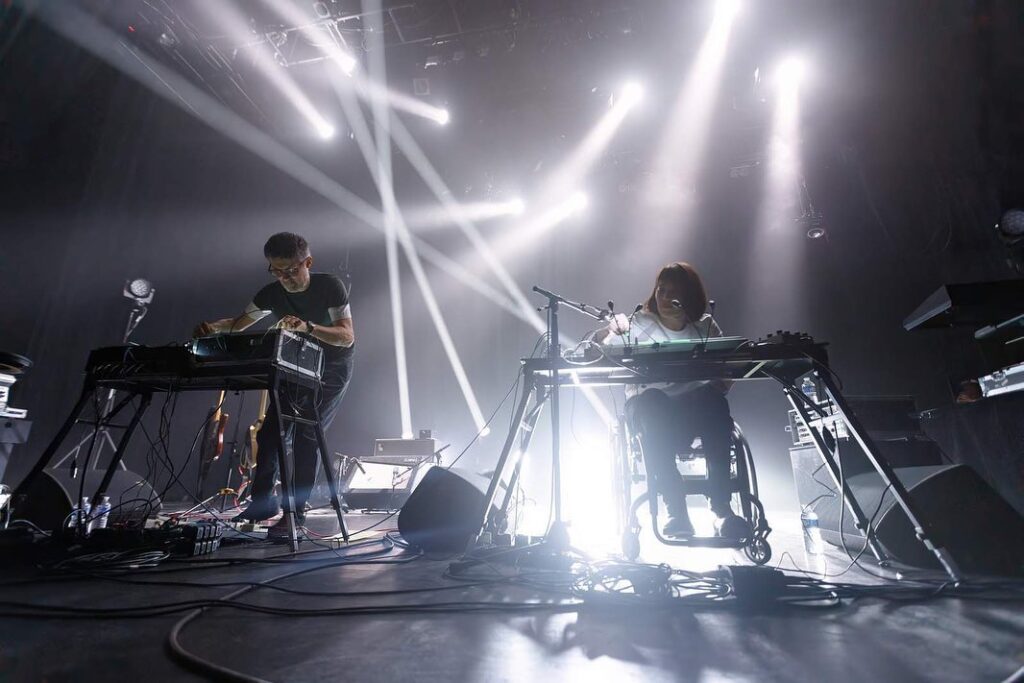
El Langui
In the Spanish music scene, the Madrid rapper with cerebral palsy, El Langui, is experiencing the peak of his career. He began his musical journey with the hip hop group La Excepción, which gained considerable recognition in its day. Currently, he is one of the most beloved urban artists, in addition to having made forays into film and television.
He provided the soundtrack for the Spanish promotion of the Rio de Janeiro 2016 Paralympic Games with the song #SeSalen. In his solo album, Espasticidad (2022), he aims to explain to the public what this condition, which has accompanied him all his life, is so that they can learn more about his disability.
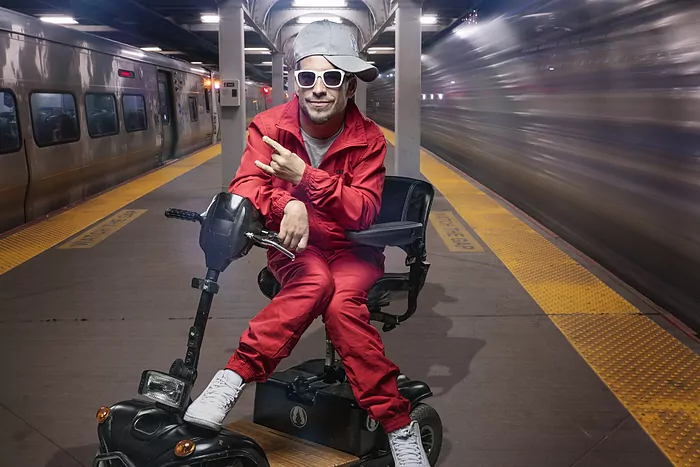
Eurovision and disability
The Eurovision contest has also served as a platform to raise awareness of musicians who are disabled.
Serafín Zubiri, a blind singer and pianist, represented Spain on two occasions. However, the most inclusive edition was that of 2015.
Finland was represented by the punk band Pertti Kurikan Nimipäivät, composed entirely of members with intellectual disabilities, and Poland by the paraplegic singer Monika Kuszynska.
In 2021, Euro-Low Vision, the Eurovision contest for blind individuals, emerged. The first winner was the Spaniard Laura Diepstraten with her song Otra visión. The 2nd edition of the festival was held in 2023, expanding the format to include more countries under the name International Low-vision Song Contest. This time, the Ukrainian Liza Moskalenko claimed victory.

In addition to the increasing visibility of modern musicians with disabilities, today’s commitment to accessibility for musical events is also improving, as most concert halls and festivals now have reserved areas for people with reduced mobility. But this topic, we’ll leave for another post… because there’s much to say!

